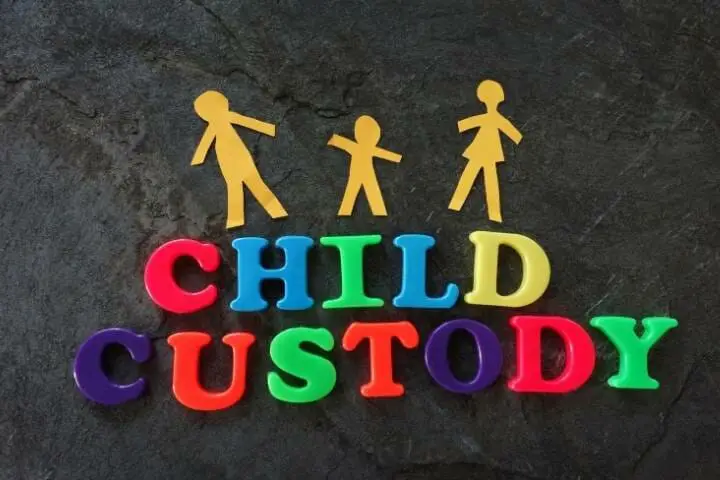Grandparents play a really important role in the lives of their grandchildren. In some cases, grandparents take on the more traditional role of grandparents that we think of: baking cookies, holiday traditions and birthday memories.

In other cases, though, grandparents take on a much bigger role in the lives of their grandchildren when the parents of the children are unable to properly provide the care they need.
No grandparent wants to step in and say their own children are not doing a good enough job of raising their grandchildren, but sometimes there are circumstances where grandparents must step in for the best interests of the children involved.
The question, though, is often when exactly can or should grandparents step in to file for custody of children?
Contents
Voluntary Custody
There may be some situations where parents know and understand that signing over custody to the grandparents is really in the best interest of the child.
When this happens, the transition may be much smoother and each side doesn’t have to involve lawyers or the court system. It can also make it much easier for the parents to regain custody when the time is right and it makes sense to do so.
Involuntary Custody
Depending on the laws of the state, there are some situations where the parents will have forfeited their parental rights to their children (without maybe not even knowing it).
For example, in some states if the children have lived with their grandparents for more than 6 consecutive months then the parents may no longer have rights to their children.
The outcome will always depend on the situation, but it’s important to know the laws of the state the children live in – especially when it comes to the custody of children.
If grandparents are concerned about laws like this in their state, or want to know what the next steps will be if something like this happened, it could be in their best interest to talk to lawyer. This can also be helpful to make sure everyone is following the process they are supposed to and have followed the law, too.
When Can Grandparents File for Custody of Grandchildren?
There are certain situations where the best interests of the children or their wellbeing is in question, and it may be better for grandparents to intervene and take custody of them.
Not all parents will agree that it’s best, though, so it can create a very stressful and tense situation in the family if it happens.
The circumstances, usually, for grandparents to look into taking custody of their grandchildren can include
- The child being in danger
- An unsafe or unstable home for the child
- The parents of the child have committed or are continuing to commit crimes
- The child’s emotional and physical needs are going unmet
It’s going to be a difficult battle to prove that a child should be removed from the care of their parents. For most court systems, no matter what state the family is in, are going to aim to keep the children with their parents – for as long as possible.
Most courts believe it’s in the best interests of the child to almost always stay with their parents, and it would need to be very extreme circumstances to forcibly remove them.

Getting a Legal Team Together
If the grandparents of the children really believe that staying with the parents is not in the best interests of the children, or the children are in danger it’s important to meet with a legal team.
The legal team can give advice as to how to proceed and when certain actions should be taken. A lawyer can be very helpful in walking through the process and preparing you for what to expect.
Before starting the legal process, though, there are a few things grandparents should consider before taking custody of their grandchildren.
Consider the Long-Term Consequences
Having custody of your grandchild can permanently alienate them from their biological parents – even if that wasn’t the initial intention.
Even if your grandchild has been living with you, and is happy and safe in your care, a change in the custody arrangement can cause a shift in the feelings or relationship they have with their parents.
Additionally, if a legal process is started but it doesn’t work out and grandparents fail to get custody it can cause permanent damage to the relationships with children and grandchildren.
Grandchildren may not understand that the decision is not within the grandparent’s control, and a judge made the ruling. If they don’t feel safe staying with their parents or prefer to spend time with grandparents then they may think that the grandparents didn’t want them if it doesn’t go their way.
This isn’t to sway anyone’s decision about whether to start a legal proceeding, it’s just to ensure that before any action is taken everyone involved has considered the long-term consequences of what this might do.
Know What You’re up Against
Don’t forget that grandchildren have parents. In most situations, when one parent is unfit or is endangering a child they will have a partner who is the same.
For grandparents who are thinking about pursuing a legal custody battle against the parents of their grandchildren, they may want to make sure they will win the custody arrangement against both parents.
If one parent is fit to take care of the children, and has similarly be working through the legal process to get custody, going through with this could make the situation even more complicated and challenging – especially for the children involved.
In situations where it is deemed that one parent is unfit, filing a custody suit could – inadvertently – give custody to the other parent and that may mean the grandchildren don’t get to see one set of grandparents anymore.
Before any legal proceedings have started, make sure everyone know what they’re up against and what the situation is in terms of the parents of the children involved.
Use Any Advantages Available
If a grandparent is going to go through with starting the legal process to gain custody of their grandchildren, they should be prepared to use every advantage they possibly can.
This can include documenting or recording every single situation where the parents of the children were unable to safely to care for their children or put their children in potential danger.

Additionally, if the parents suffer from mental illness, have been arrested or involved in criminal activity this can help the grandparents to build a stronger case against them. However, sometimes grandparents have a hard time using these facts against their own children in court proceedings.
Taking advantage of the situation when there’s a decrease in the biological parent’s abilities can help grandparents to get custody of their grandchildren.
Think Before Contacting the Authorities
If it is believed that children are truly in danger, then the appropriate authorities should be contacted to intervene.
It’s really important, though, that no stories are fabricated or exaggerated when contacting the authorities for child endangerment.
If contacting the authorities results in the children being removed from their parents care, grandparents can request that they be placed with them. Any report that is made, though, will be recorded by the proper authorities and could be used to build a case against the parents – so be really sure before contacting any authorities about child endangerment.
When to Get Involved
As grandparents, the natural reaction is to worry about the care of your grandchildren. There might be a custody battle going on between the parents, and getting involved is only going to cause more confusion or make it more complicated.
Instead, during this time it may be more beneficial to offer housing or other support to make sure there is a stable and safe home for the grandchildren. Grandparents may choose to support their own biological child during the custody arrangement, as well.
If it is the biological child of the grandparents who wins custody of the children, they can maintain a better relationship with them and step in when or if it’s needed.
Keep the Relationship With Their Parents
Even in a situation where grandparents are awarded full custody of their grandchildren, it is encouraged that they keep an open relationship with the parents as much as possible.
Even if the parents are deemed unfit for being parents, helping them to maintain an open relationship can go a long way to keeping communication open and ensuring problems can be resolved without courts and lawyers.
If parents feel as though they cannot have any kind of relationship with their children (unless court ordered, of course) then they may become hostile and not be willing to work with the grandparents at all.
Removing children from the custody of their parents is never something anyone wants to do – especially their grandparents.
However, sometimes it’s necessary for the wellbeing of the children and to make sure they are in a safe and stable home.If you’re thinking about the safety of your grandchildren and filing for custody of them, speak with a lawyer first so you understand all your options and what the actions taken could mean for the relationship you have with your children and grandchildren going forward.
